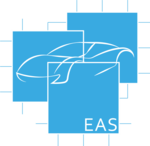
Contact
wsos(at)iti.tugraz.at
News
List of Participant updated
Hands-on-Lab and Program updated
Focus: System Software for Dependable Computing
Computer systems are ubiquitous in our daily life. They can be found in our private environment and in commercial systems such as industrial plants or server farms. Others are embedded into vehicles and medical devices, or control important infrastructure for communication, power supply, traffic, etc. Since we entrust these systems our personal sensitive data and sometimes also our lives, they have to be absolutely dependable under any circumstance and in every possible situation.
The Frühjahrstreffen (Spring Meeting) of the GI Special Interest Group "Operating Systems" as well as the Winter School on Operating Systems (WSOS) address the influence of software on the dependability of computer systems. We invite you to submit your work on dependable software, especially (but not only) on the following topics:
- OS Architectures for single- and multi-core
(concepts, design, implementation, etc.) - Dependability in general
(real-time, safety, security, maintenance) - System Software Design
(fault-tolerance, error handling, programming paradigms, virtualization etc.) - Formal methods
(verification, validation, etc.) - Dependable Communication and I/O
- Tooling for Dependable Systems
- Dependability in Application Domains
(IoT, CPS, Automotive, Avionics, Rail, Space, Medicine, etc.)
Target audience
The Spring Meeting ("Frühjahrstreffen", February 25-26, 2016) primarily addresses the members of the Fachgruppe Betriebssysteme and allows the presentation of topic-related contributions. Presentation language is either German or English.
The Winter School on Operating Systems ("WSOS", February 22-24, 2016) primarily addresses postgraduate students, PhD students, and young researchers in this domain. The winter school offers lectures from selected experts and hands-on workshops that shall contribute to the dissemination of knowledge and exchange of experiences. Presentation language is English.
Both events offer a platform for active discussions about the future research focus and potential cooperation projects as well as for networking within the community and across.